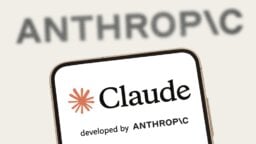“Search is not the primary problem – all traffic from major search engines accounts for less than 16% of traffic to sites like The Pirate Bay.”
That’s what a Google spokesperson told MBW earlier this year. So the tech giant will be pleased to hear that a credible new report completely backs it up.
MUSO’s in-depth Global Piracy Report reveals the amount of music-related traffic which hit piracy platforms in 2015 –and exactly where it came from.
One positive takeaway for Google: MUSO estimates that just 14.2% of the world’s 9.65bn total music-related visits to torrent sites last year came via search engines.
Nearly 65% of these visits actually arrived direct.
So why that dramatic headline?
To answer this question properly, first you’re going to have to scrub from your mind most traditional thinking about music piracy.
Because it turns out that torrenting – including the shadowy forces of The Pirate Bay and Kick-Ass Torrents – aren’t actually the music business’s biggest enemy anymore.
The MUSO report, which drills down into piracy activity on a country-by-country and a month-by-month basis, reveals that torrenting was actually responsible for just 28.3% of total global music piracy visits last year.
The most popular form of piracy across the world?
Illegal streaming sites, with more than 35% of total visits.
Think Spotify, but without the licenses. Examples include Vietnamese site Zing MP3 and the US’s Grooveshark – before it was smashed by an RIAA lawsuit.
Guess what?
Search engines were the conduit for almost half of this illegal traffic around the world in 2015 – pushing 46.3% of music-seeking visitors to illegitimate streaming platforms.

It gets worse.
The third most popular form of online music piracy in 2015 took place on ripping services – led by the notorious YouTube-mp3.org.
In fact, these sites are almost all specifically designed to pull content off YouTube.
Ripping platforms made up 17.7% of music-related visits to piracy sites across the globe in 2015, according to MUSO – amounting to more than 6bn in total.
Facepalm: search engines were responsible for an eye-watering 49.8% of all music-seeking traffic hitting these ripping platforms.
That’s approximately 3bn visits in total.
So let’s get this straight: Google is directing billions of visits to piracy-enabling ripping sites, which are specifically built to help people illegally obtain media from… YouTube.
A platform owned by… Google.
What do you even call that?
Piracy squared?
Across all types of piracy sites, says MUSO, there were 34.06bn music-seeking visits last year – 37.2% of which came via search engines.
With Google’s search engine market share pegged at 64% by ComScore, that would mean the Alphabet company was directly responsible for approximately 8.1bn piracy visits globally in 2015.
Conclusion: Google’s role in habit-forming music piracy activity is evolving.
And while it’s pretty squeaky clean on torrenting sites, that hasn’t stopped it becoming a great assistant to a new breed of copyright-infringing platforms…







